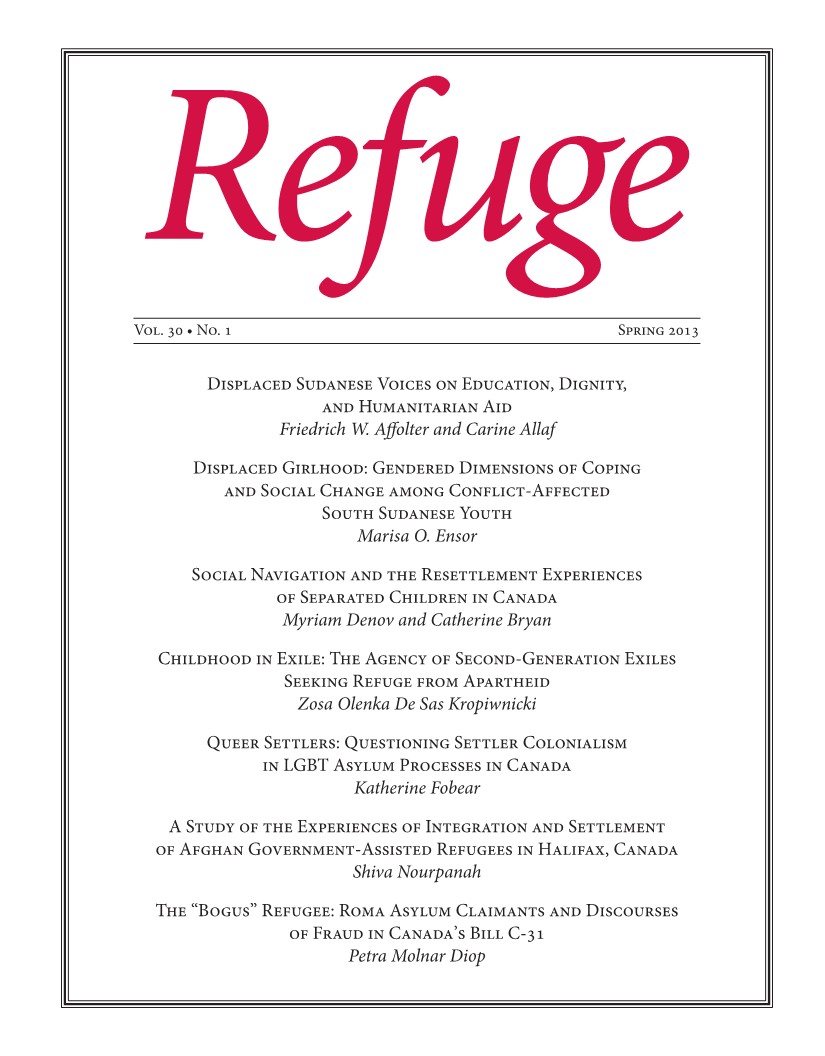The “Bogus” Refugee: Roma Asylum Claimants and Discourses of Fraud in Canada’s Bill C-31
DOI:
https://doi.org/10.25071/1920-7336.38604Keywords:
Canada, Czech Roma refugees, Bill C-31, Protecting Canada's Immigration System Act, refugee determination, state sovereignty, citizenship, discourseAbstract
The passage of Bill C-31 into Canadian law in June 2012 is part of a discourse created around refugees by the current Government of Canada. Refugees are divided into “good and proper” refugees who live in camps abroad, and the “ fraudulent and bogus” refugees who claim asylum at the Canadian border. The new act, Bill C-31 or Protecting Canada’s Immigration System Act, is analyzed with respect to changes that will result in the systematic exclusion of certain groups of asylum seekers from Canada, based on these discourses of “bogus” and “fraud,” even though these groups may include genuine refugees. Drawing on the case of Czech Roma refugee claimants who come to Canada from Europe, this article shows how the Roma come to stand for the perfect “bogus” refugee — a person who wants to cheat the benevolent Canadian system without having grounds for a successful refugee status application. A critical look at the legislation provides new insights into the relations between governmentality and the regimes of citizenship, with the state performing its power in increasingly spectacular ways. Refugees act as the abject Other that legitimizes, legalizes, and reaffirms such state interventions.
Metrics
Downloads
Published
How to Cite
Issue
Section
License
Copyright (c) 2014 Petra Molnar Diop

This work is licensed under a Creative Commons Attribution-NonCommercial 4.0 International License.
Refuge authors retain the copyright over their work, and license it to the general public under the Creative Commons Attribution-Non Commercial License International (CC BY-NC 4.0). This license allows for non-commercial use, reproduction and adaption of the material in any medium or format, with proper attribution. For general information on Creative Commons licences, visit the Creative Commons site. For the CC BY-NC 4.0 license, review the human readable summary.







